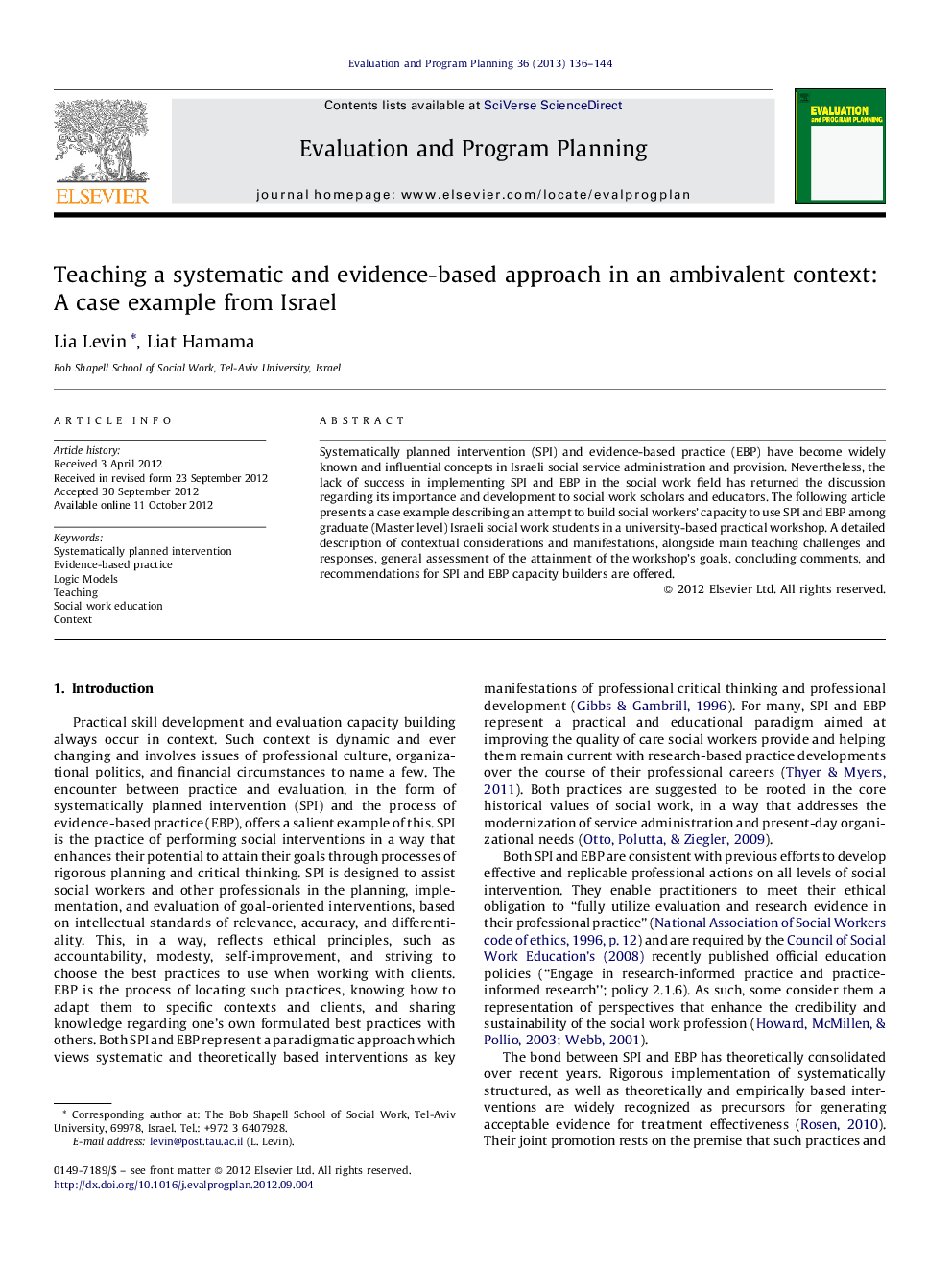| کد مقاله | کد نشریه | سال انتشار | مقاله انگلیسی | نسخه تمام متن |
|---|---|---|---|---|
| 319447 | 539430 | 2013 | 9 صفحه PDF | دانلود رایگان |

Systematically planned intervention (SPI) and evidence-based practice (EBP) have become widely known and influential concepts in Israeli social service administration and provision. Nevertheless, the lack of success in implementing SPI and EBP in the social work field has returned the discussion regarding its importance and development to social work scholars and educators. The following article presents a case example describing an attempt to build social workers’ capacity to use SPI and EBP among graduate (Master level) Israeli social work students in a university-based practical workshop. A detailed description of contextual considerations and manifestations, alongside main teaching challenges and responses, general assessment of the attainment of the workshop's goals, concluding comments, and recommendations for SPI and EBP capacity builders are offered.
► Systematically planned, evidence-based practices are part of social service policies in Israel.
► Marginal integration of them into the social work field underscores the role of SW educators in introducing them.
► We present a case example describing an attempt to build social workers’ capacity to use SPI and EBP.
► We focus on the various levels of contexts in which SPI and EBP capacity building takes place.
► Critically compiled recommendations for SPI and EBP capacity builders are offered.
Journal: Evaluation and Program Planning - Volume 36, Issue 1, February 2013, Pages 136–144